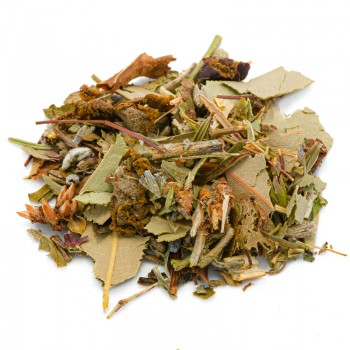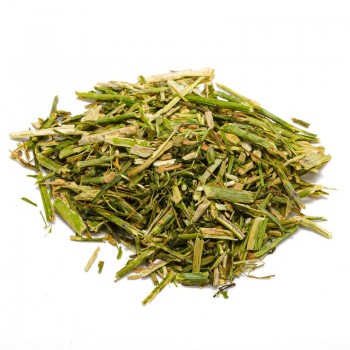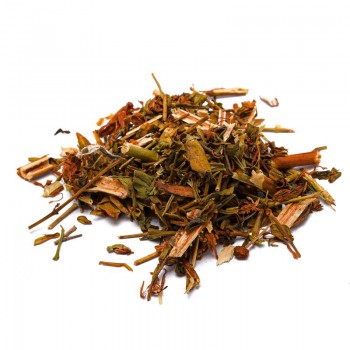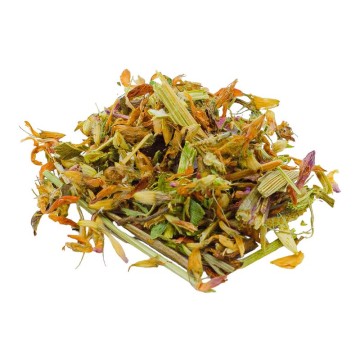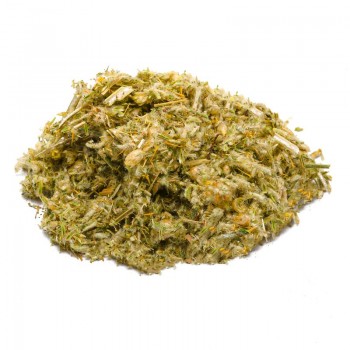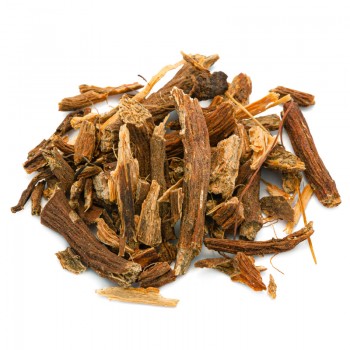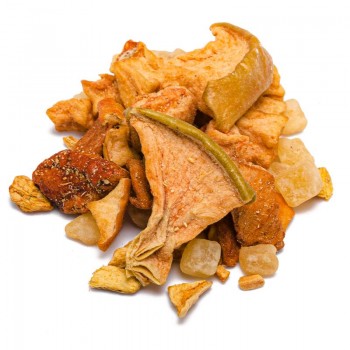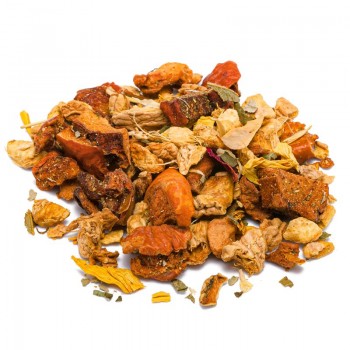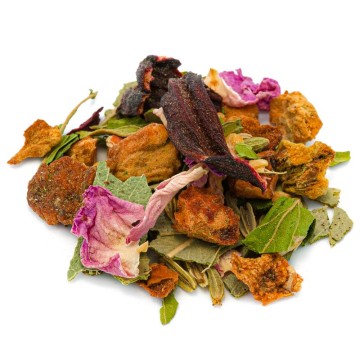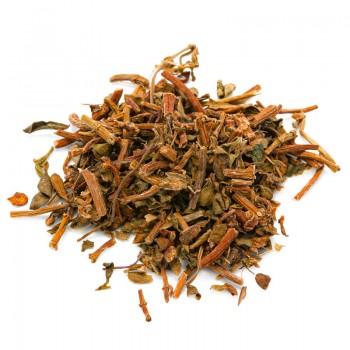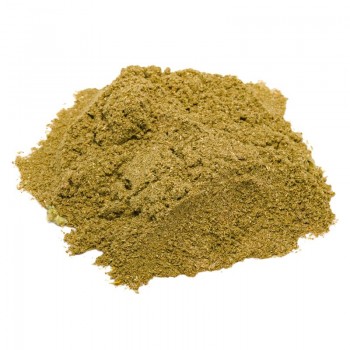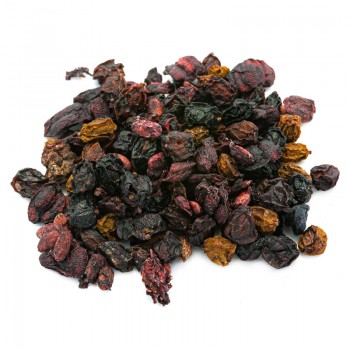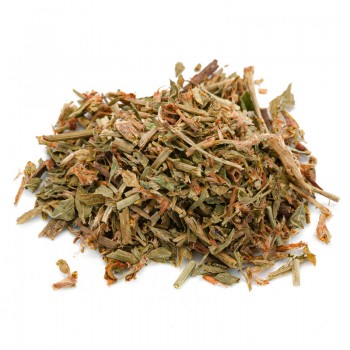Eucalyptus is an evergreen tree, whose leaves are widely used in herbal medicine.
These are leaves covered with oil glands, with a natural menthol scent, similar to mint leaves.
They contain a series of beneficial compounds, found mainly in the volatile essential oils of the plant. They are known for their balsamic , mucolytic, expectorant and bechiche (for the treatment of coughs) properties.
Eucalyptus leaves: properties and benefits
The eucalyptus infusion acts above all to calm coughs, or to soothe sore throats and tonsils. The dried leaves can be transformed into a valid herbal tea for the bronchi and lungs.
They are therefore used internally in the treatment of bronchial affections and coughs, but the plant is traditionally also associated with the treatment of ear infections and adenoids.
This beneficial action depends on its compound called eucalyptol (or cineole) considered useful for decreasing nasal congestion, cough frequency and cold headaches.
Eucalyptus tea could improve cold symptoms, and is indeed a common ingredient in products for seasonal diseases of this type.
Thanks to the terpene found inside the plant, the aforementioned eucalyptol, the herbal tea can reduce mucus, expand the bronchi and bronchioles of the lungs, promoting a natural anti-inflammatory action . Additionally, eucalyptol may help improve some asthma-related symptoms.
The eucalyptus leaf extract can improve the health of the oral cavity and teeth, thanks to the presence of ethanol and macrocarp polyphenol C. These compounds counteract the bacteria that can cause tooth decay and gum disease.
The lotion from eucalyptus plants has historically been used for external use as a natural antibacterial, and to treat dermatitis or eczema.
The eucalyptus herbal tea is also rich in flavonoids, ie antioxidants. These are substances that can reduce our cells' risk of being damaged by environmental or internal factors - free radicals.
As a relaxing herbal tea, eucalyptus is believed to reduce the symptoms of stress, with calming effects.
Origins and History of cultivation
Originally from Australia, this tree now grows in many areas of the world, known for its healing properties and intensely scented leaves.
In its natural habitat, eucalyptus provides koalas with their only source of livelihood.
Outside Australia, eucalyptus trees arrived after the mid-eighteenth century, when, following Captain James Cook, two botanists studied them and included them in botanical collections.
This plant was defined Eucalyptus in 1777, by the French botanist L'Héritier, who was inspired by the Greek words eu (well) and calyptos (covered), referring to the operculum that protects the developing parts of the flower.
Today we know that the aborigines of Australia have used eucalyptus for centuries, as well as the first European explorers who discovered its health benefits. Almost all parts of the plant have medicinal benefits: eucalyptus leaves, bark and roots.
Oily leaves are difficult to digest when eaten whole, but they can be made into herbal teas.
In addition, they can be made into essential oil for topical use or by inhalation, dried to make tinctures, or steamed.
Eucalyptus trees have been grown in many other countries with success, as they are fast growing and have valuable timber. They can be used for cellulose, for the production of honey or essential oils .
Plant and flowers
Eucalyptus belongs to a genus consisting of evergreen shrubs and trees, which naturally exist only in the temperate habitats of Australia.
It is part of the Mirtaceae family, and features a smooth bark, long stems and circular leaves. They vary in size and are rarely taller than 10 meters.
Naturally existing both as an isolated shrub and in forests, Eucalyptus grows on different types of soil, the important thing is the drainage of excess water. Sunlight is a vital aspect for the plant.
These evergreens can also be grown indoors, the important thing is to keep the climate temperate.
Nutritional values of Eucalyptus - leaves
The leaves contain flavonoids and tannins, which can help reduce inflammation and benefit the body.
The main beneficial factor of eucalyptus leaves is given by the essential oil they contain, rich in eucalyptol or cineol, terpenes and polyphenols.
The main flavonoids in eucalyptus include catechins, isorhamnetin, luteolin, kaempferol, phloretin and quercetin.
How to use Eucalyptus leaves in herbal tea
The eucalyptus infusion is obtained by inserting in a cup (250 ml), about 3-5 grams of leaves in herbal tea cut, with water at 100 ° C.
Leave to infuse for 5 to 7 minutes, before drinking the herbal tea.
Add honey or sugar if desired.
Eucalyptus: side effects and contraindications
Eucalyptus leaves are generally recognized as safe, while some health risks are associated with consuming eucalyptus oil, which can be toxic.
The eucalyptus leaf can in any case cause side effects including nausea, vomiting, diarrhea.
In any case, eucalyptus tea is not recommended for children, pregnant and breastfeeding women.
Eucalyptus may interact with some drugs for diabetes, high cholesterol and psychiatric disorders, so it is good to consult a specialist in the case of chronic diseases.

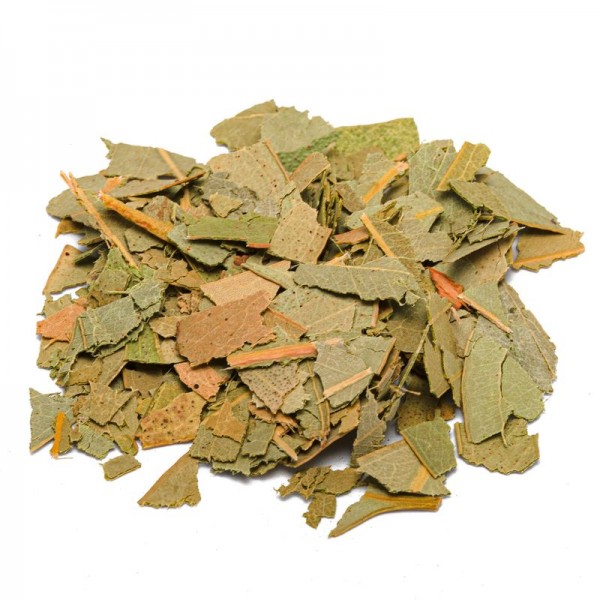









 No reward points for this product.
No reward points for this product.
